Sarah Fowler, founder of Eden House, speaks on being a sustainable plant parent and the importance of community.
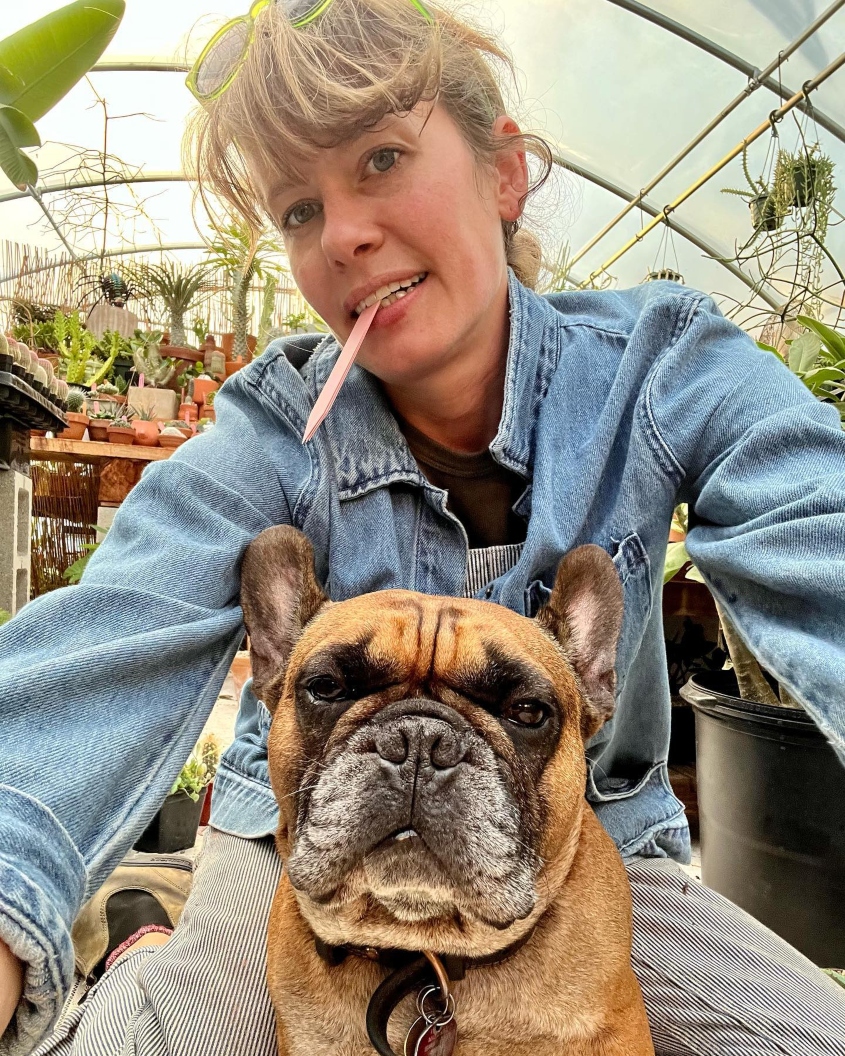
By Janaye Barabin, Photos courtesy of Sarah Fowler
When you first walk into Eden House Botanicals, you’ll know you’ve found something special. There’s a diverse selection of plants sitting on shelves throughout the store. They line the walls, from the floor to the ceiling, with colorful planters and crystals nestled among them. The atmosphere is intimate and cozy. If you walk into the backyard, you’ll discover a greenhouse full of plants. With products from local vendors artfully scattered throughout, the plant nursery looks and feels like you’ve wandered into a treasure trove. During the spring market, local vendors and customers fill the backyard. The entire place was alive with music and conversation. When she first opened the store, Sarah Fowler knew that she wanted to support her community; however, she had no idea that her shop would become a thriving hub for creatives and makers from all over Austin.
Fowler was born and raised in Austin as a plant lover. She started Eden House Botanicals in 2020 in her own greenhouse, while selling plants in her front yard and on Etsy. In the fall of 2021, she bought and remodeled the building where her business is currently. When designing the shop, she says the treasure trove aesthetic was intentional. Her eclectic style is influenced by the stores she saw in Austin growing up.
“Everything in the store is something that I personally love,” she says. “It’s just a crazy collection of everything that makes me happy. I wanted it to have this treasure cave vibe to it, kind of like a little portal. I like that on the outside it just looks like a little store. But then you open it up and there’s colorful planters and crystals. It’s like you stepped into this other world.”
Eden House for the Community
Fowler centers her business around community, and she has a passion for helping local creatives. Focusing on community was one of the ways she was able to grow her business. “I always wanted to support a community, but I didn’t see it being a community like this,” she says. In 2022, she attended her first market. “I did my first market with like five vendors, and we just invited people to come see the store. I kept reaching out to other creators and makers and just expanded our circle in this really natural way by reaching out to friends and friends of friends.”
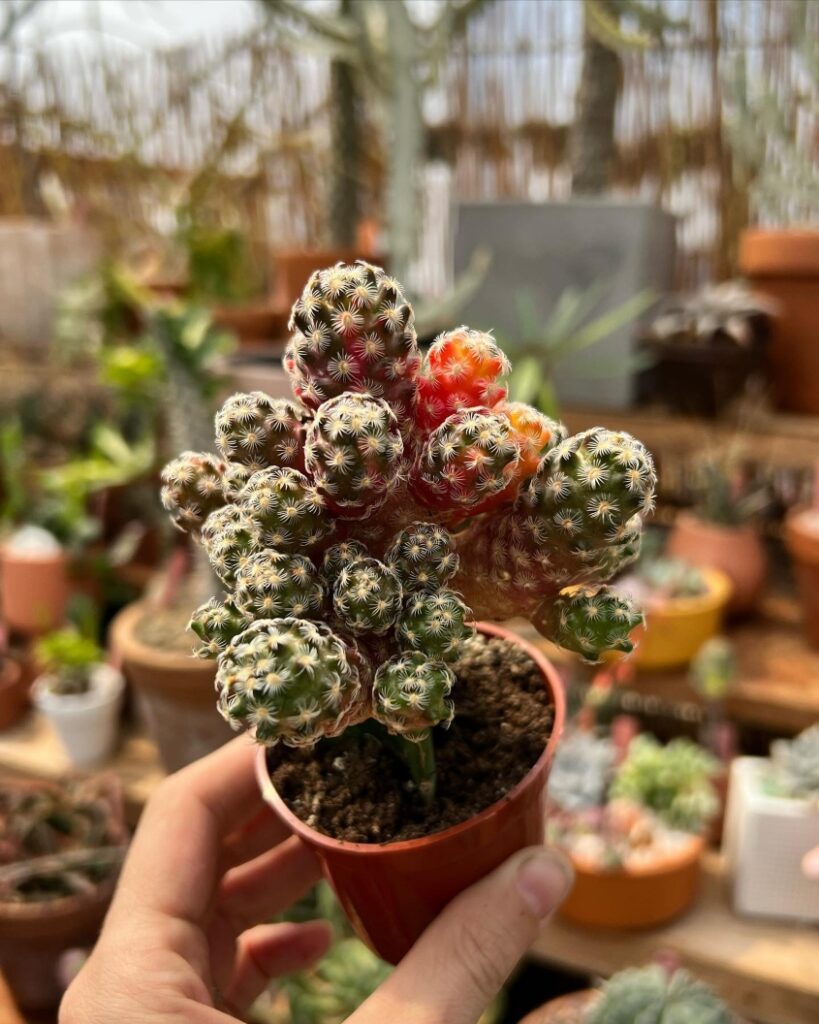
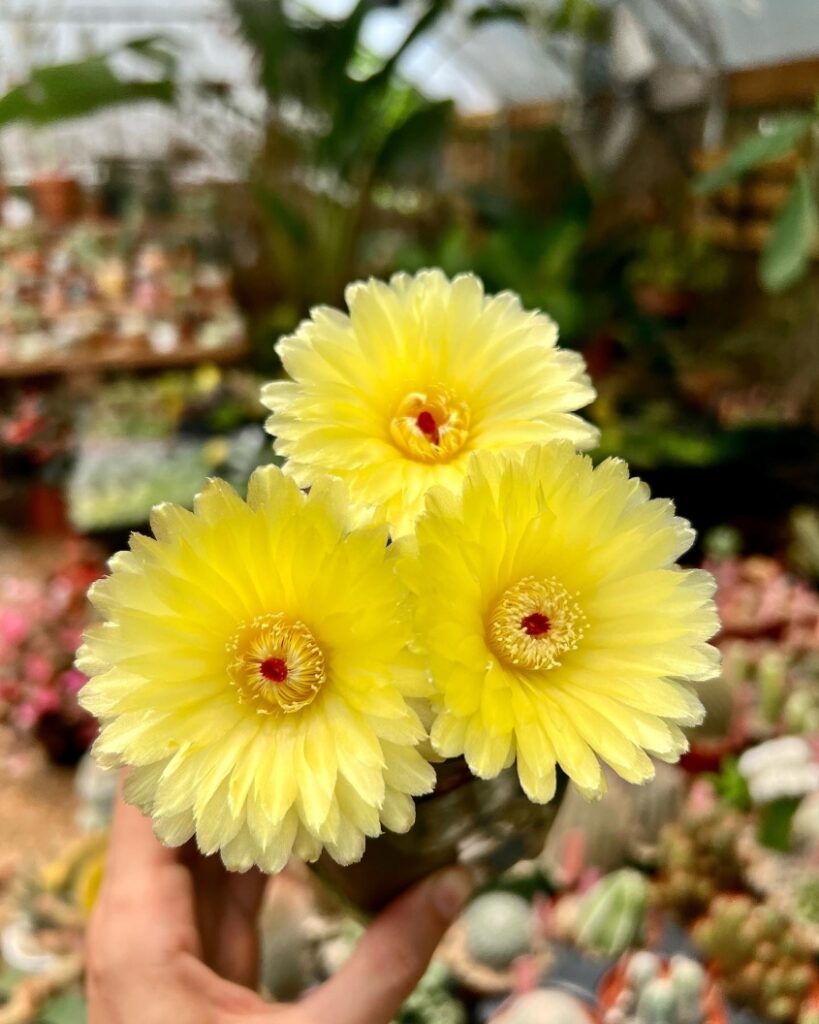
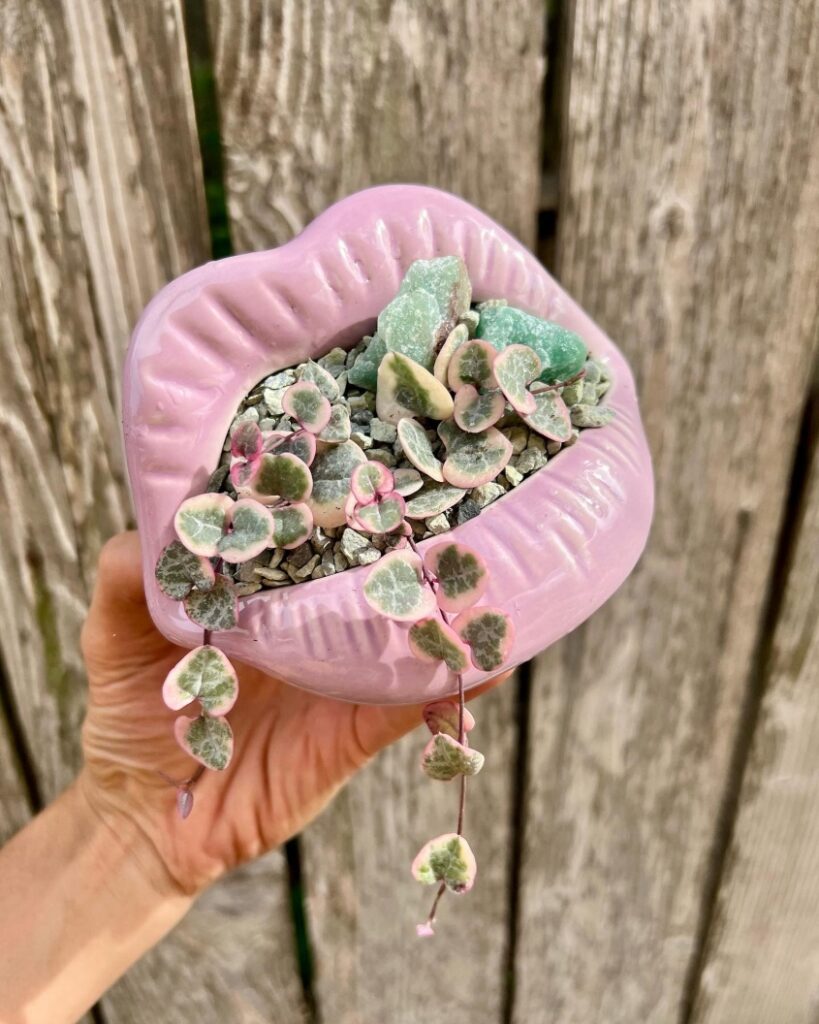
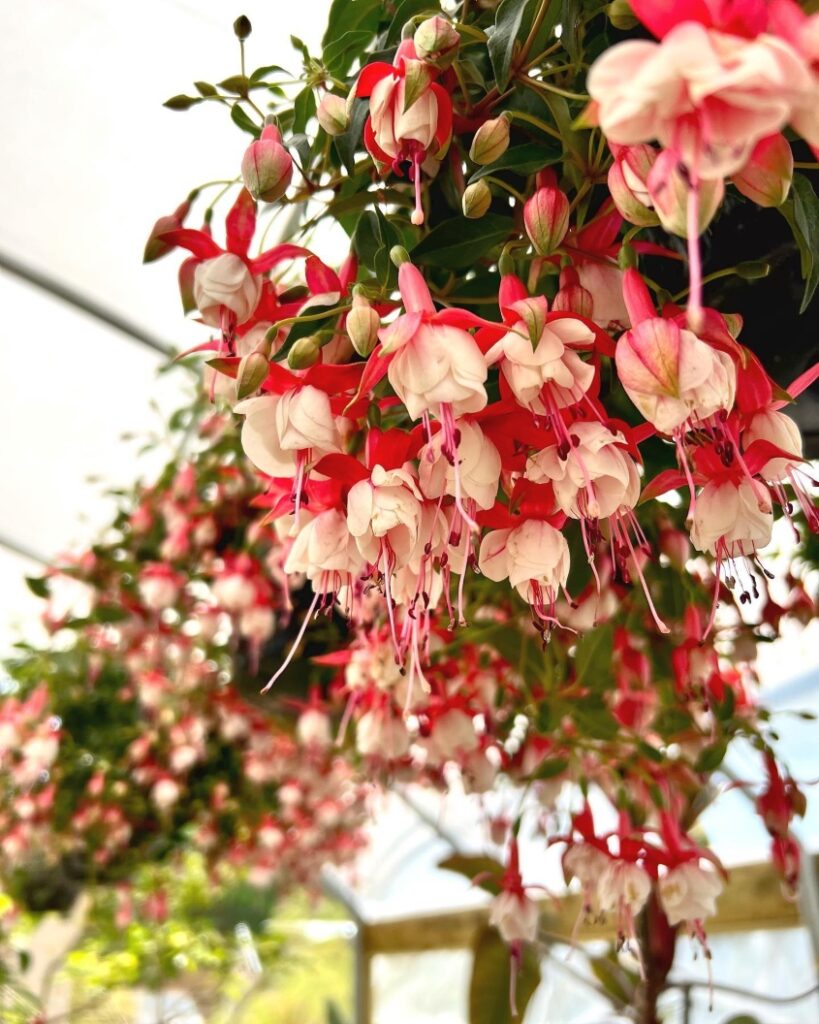
When Fowler opened the store in November 2021, she only sold plants she had grown herself; she worried that if she included other local businesses, she would negatively affect them if she failed. “I didn’t start adding other local makers until the spring. It was part of the imposter syndrome,” she says. “I totally believed in it, but at the same time, I wasn’t sure if it was gonna work. So I didn’t want anyone to be dependent on me if it was a mess. It took a few months for me to add them in.”
Fowler gives credit to her community for helping her fight the imposter syndrome. She recalls how Christina Enriquez, designer of Mom Dot Pom, boosted her confidence. “Christina came in and brought all her family members back the next day. Then she brought a whole bunch of friends the next week. She kind of gave me the confidence of, ‘People like your store, people like what you’re doing.’”
The Eden House & Sustainability
Sustainability has always been important to Fowler. She is committed to using sustainable business practices. “I don’t import from overseas anymore. Airplanes are some of the worst ways we pollute the earth. The bulk of our plants are grown here or from another grower I have that’s about 10 minutes from here. She does a lot of diverse vegetables for me. The other growers are all about 20 to 30 minutes away from here, specializing in tropical plants and cacti. Everything I can’t grow myself I try to source from right here.
“We reuse pretty much everything,” she continues. “We reuse all the plastic planters, and if it’s broken we recycle it. I collect them from my parents, their friends and anyone who has extra plastic planters. Same thing with the plastic trays and all the plastic nursery items; we sanitize and use them again. We also reuse all the soil unless it’s been contaminated; in that case, I drop it off with the city, and they cook it in high heat to kill the bacteria and reuse it for their compost. I even do discounts for people who bring me their Amazon boxes because we use them to put people’s purchases in. It’s all about recycling.”
When buying plants, there are things you can look for to ensure that you are shopping sustainably. Fowler recommends looking into where plant sellers get their plants. “I recommend sourcing from local places or from places that either grow locally or grow their own plants. It’s hard to find in the plant industry these days, but there are a lot of really great nurseries that only source in the state of Texas. I think it’s super important to choose local stores instead of big-box stores because those are gonna get flown or driven across the country.” She also recommends using natural or organic fertilizers and worm castings, especially if they are made locally.
Tips for Plant Parents
Fowler goes on to share a few tips for those looking to become plant parents and those who may be struggling with plants they already have. “Start with one basic house plant,” she says. “Keep that one for a couple weeks or months and get it happy and thriving. Then get another one. Once you find a plant that works, get every other version of that plant. That’s how I started with pothos. Once I had one healthy pothos, I got all the other kinds so I could take care of them all. Now they’re happy and thriving.”
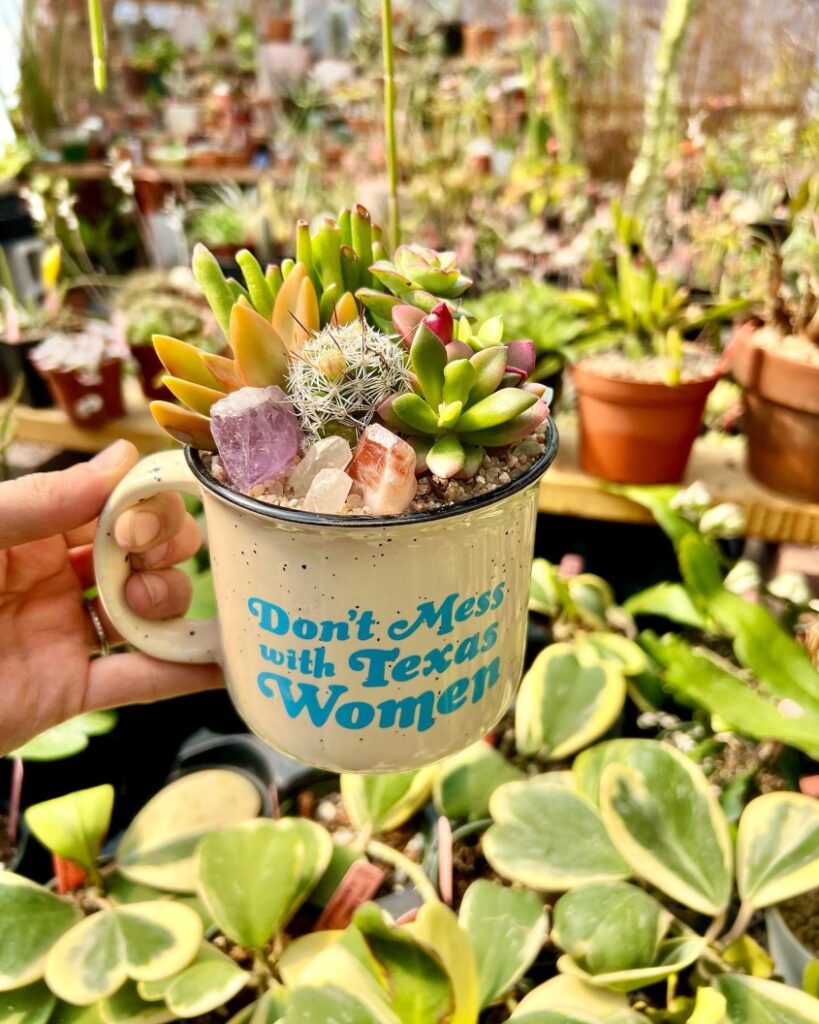
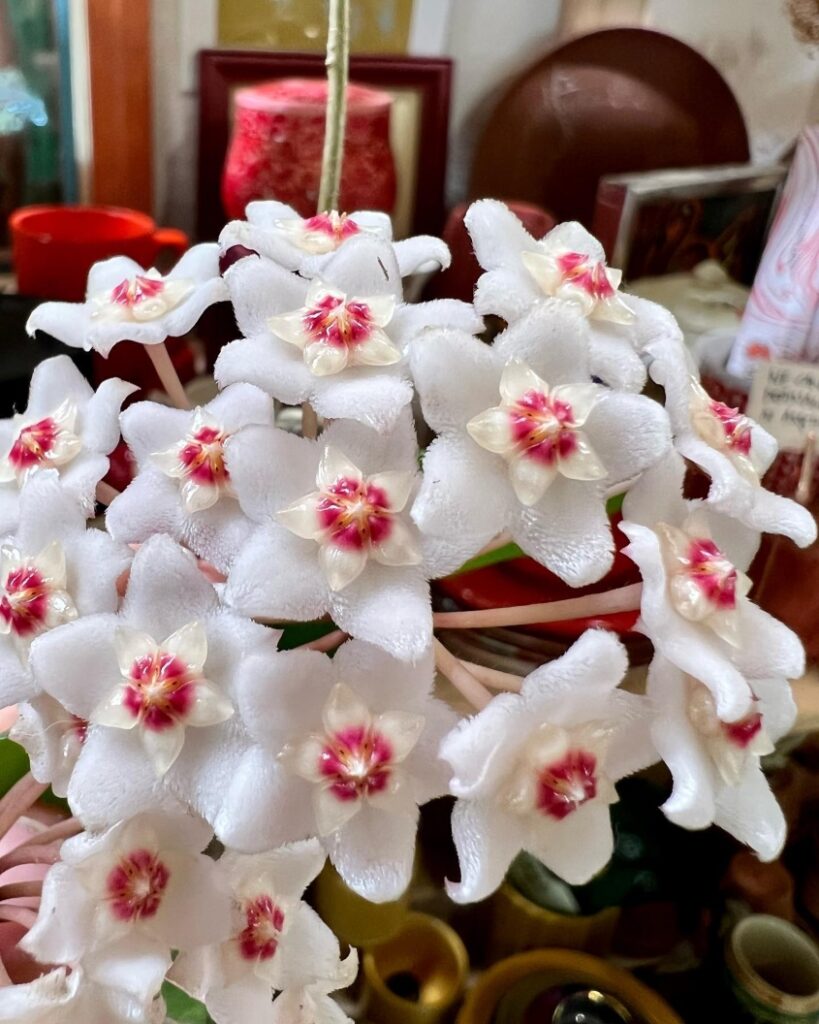
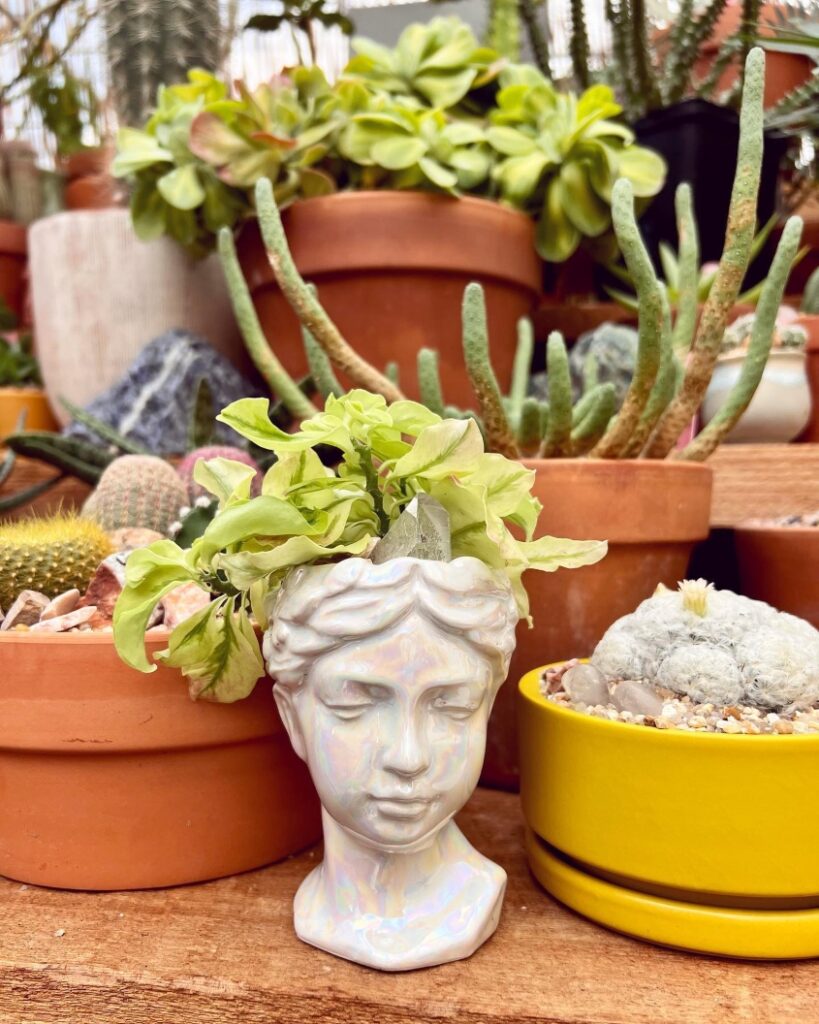
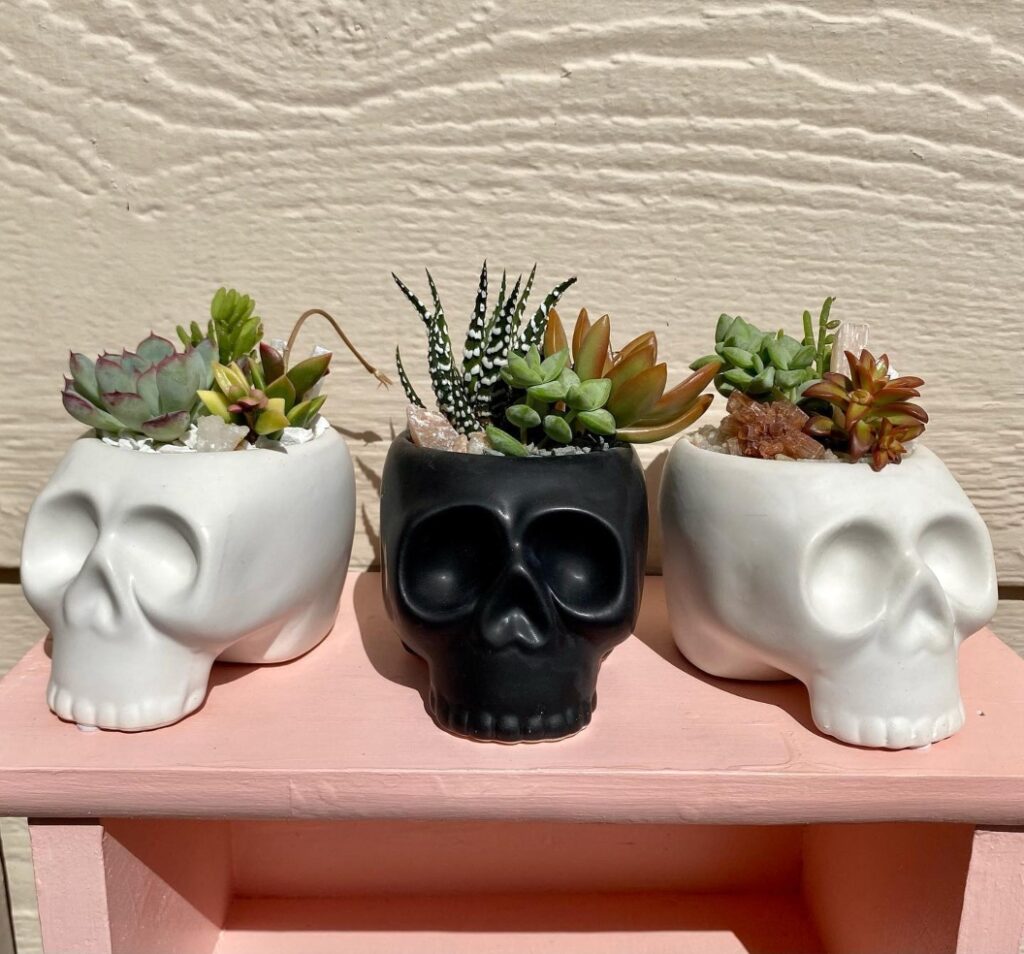
She emphasizes the importance of getting a plant that matches your lifestyle. “When you go buy a plant, ask if it’s low maintenance or if it needs water every week. That way you can find something that’s right for the kind of care you can provide. It’ll tell you exactly what it needs; you just have to learn its language. Don’t get discouraged if you fail at first. It’s all a part of the learning process.”
Fowler believes in the unifying power of plants. She’s been able to build a successful business that brings people together, serves her community and supports the well-being of the planet. “I think it’s important to grow them because it ties you into the rhythm of the earth; it’s very grounding,” she says. “Plants have been really important in my healing journey and just for my every day health. It’s really exciting to see this many people excited about plants and supporting small businesses.”


